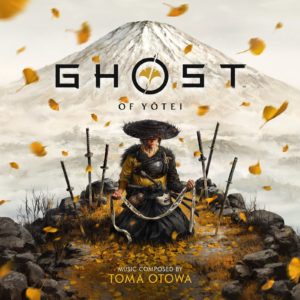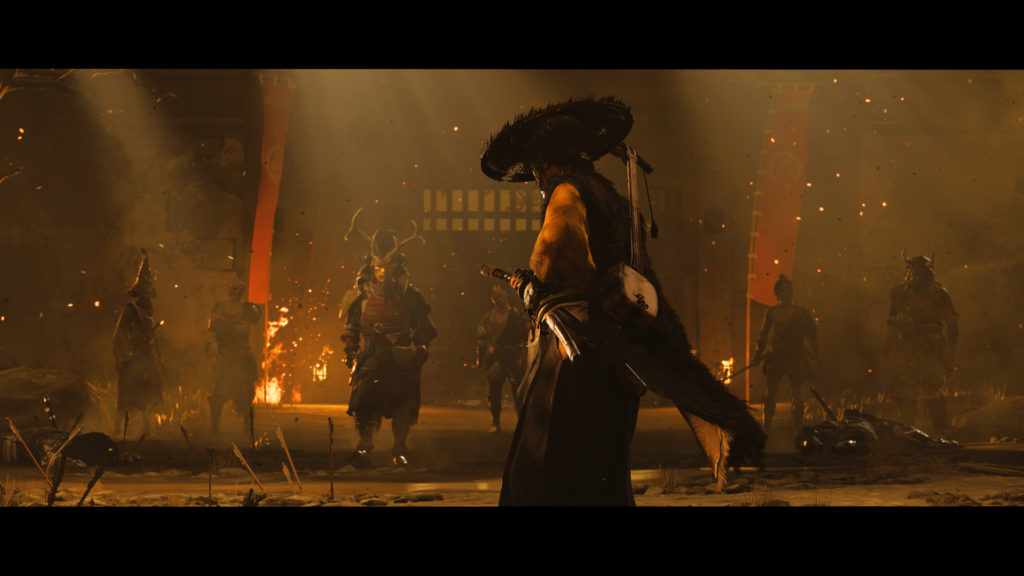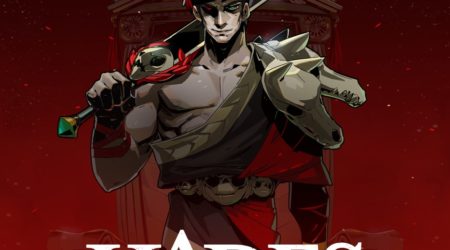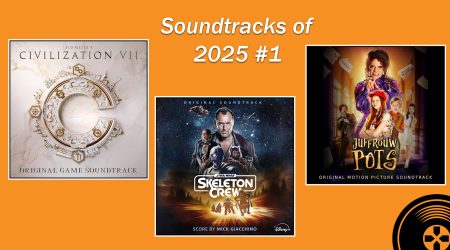
When the game Ghost of Tsushima came out, I was quite excited about its music, composed by Ilan Eshkeri and Shigeru Umebayashi. Umebayashi wrote some excellent music that evokes the atmosphere of old Japan, but I especially like Eshkeri’s music, with his magnificent orchestral pieces that blend Eastern influences and are full of emotional bursts, especially when Clare Uchima adds her vocals to it.
If a game is successful, sequels will be developed, resulting in Ghost of Yōtei coming out this year. While the game is still about a ‘ghost’ showing off impressive sword skills and defeating enemies in the samurai period of Japan, the story of the new game takes place 300 years later, featuring the female protagonist Atsu, who seeks revenge on the six antagonists who murdered her family. Another difference for this new game is that Toma Otawa, a different composer, wrote the music. If you are unfamiliar with his name, it is understandable, as he began using it early this year and was known as Wataru Hokoyama before then. Under the old name, he has made quite a career for himself with a few video games under his belt and some movie work as well, as a co-composer or additional music writer for Mark Mothersbaugh.
With a new composer comes new music, and I was immediately excited. If you listen to the first track, “Ghost of Yōtei,” you can understand what I mean. In this track you can hear the new theme for Atsu, the new Ghost, which melody-wise has some similarities to the theme by Eshkeri, but what stands out is the choice of instrumentation and the musical influences. While you still hear many Eastern instruments, including the shamisen, the instrument of the protagonist, you can also hear a lot of Western ones, including acoustic and lap steel guitars. Drawing on both musical worlds, with some support from strings, Otawa created a marvelous score that is heavily influenced by Ennio Morricone’s work for Spaghetti Westerns. Old samurai movies heavily inspired the Ghost Of games, and in a way, those kinds of stories share familiarities with Western films. Instead of wearing cowboy hats and carrying guns, the warriors use katanas and wear Japanese armor, creating a perfect fit between Ghost of Yōtei’s world and Otawa’s music.
As with the first game, the music is built on two main themes. I already mentioned the first theme for Atsu, and her theme has two other versions on the album, with “Atsu’s Theme” as the last track, but the one I want to highlight is the third track with the same name, because this version features vocals by Clare Uchina, who had returned for the new game. In Ghost of Tsushima, her emotional vocal outbursts stood out to me, and in the new song for Atsu, she is more reserved, as if she is trying to restrain her emotions, adding some fantastic mystery to the song. It is not the only song on the album, because you can hear her incredible voice again in “Mother’s Song.”

The second main theme is for the six antagonists of the game, and can be heard in “The Yōtei Six,” and is a brilliant example of how both East and West can be merged in one cue, because if you were to replace the Eastern instruments with Western ones, you would have a typical, but still fantastic, cowboy theme.
The blending of the two styles and integration of the themes continue throughout the whole album, creating a more intimate score than its predecessor. Not only can you hear this on the album, but you can also discover a lot of blending of the two styles in the game itself. When Atsu is traversing stunning landscapes, you can sometimes hear, in the background, an Eastern instrument like the shamisen playing a duet with an acoustic guitar, which sounds very minimalist and is very appropriate. What I also love about the game is the standoff before a duel between two warriors, with very Morricone-like music, but again with these Eastern influences mixed in.
Suppose there is a scenario where you get bored with the music while playing the game, which I can hardly imagine, you also have the option to change the game to the so-called Watanabe mode. When the player activates this new mode the music played during exploration and combat will change to lo-fi tracks, which are created by the famous Japanese director Shinichiro Watanabe. I have not explored this music for this review, but I want to acknowledge its existence at least and applaud the originality of putting this in the game as well.
I was planning to take the week off from writing reviews so I could focus more on the significant backlog of scores I still need to explore. However, when I heard the music for Ghost of Yōtei, I immediately knew I needed to listen to it more and watch footage of the game so that I could write a review. As I mentioned in my Spotlight article last week, game scores keep surprising me, and there may come a time when I write more about game music than about music for other media. This time will undoubtedly come when more stunning game scores like the one Toma Otawa wrote for Ghost of Yōtei keep coming out.
Listen or buy
- Buy this soundtrack from Amazon or Apple Music
- Listen to this soundtrack on Spotify
Tracklist
The highlights are in bold.
- Ghost of Yōtei (3:19)
- The Yōtei Six – from “Ghost of Yōtei” (3:18)
- Atsu’s Theme – from “Ghost of Yōtei” (2:50)
- The Wilds of Ezo (3:56)
- Oyuki’s Theme (3:39)
- The Way of the Shamisen (2:36)
- Wanderer (3:47)
- Clan Matsumae (2:59)
- The North (3:13)
- Mother’s Song (2:22)
- Twin Wolves (3:07)
- Onryō (3:25)
- Upon the Wind (4:00)
- The Nine Tails (2:19)
- Night of the Burning Tree (2:10)
- Wrath of the Ghost (2:25)
- Okami (3:30)
- Ishikari Plain (2:45)
- Oshima Coast (3:40)
- The Call of Revenge (2:09)
- Shogun of the North (4:02)
- Atsu’s Theme (2:54)
Total length: 1 hour and 8 minutes
Milan (2025)




